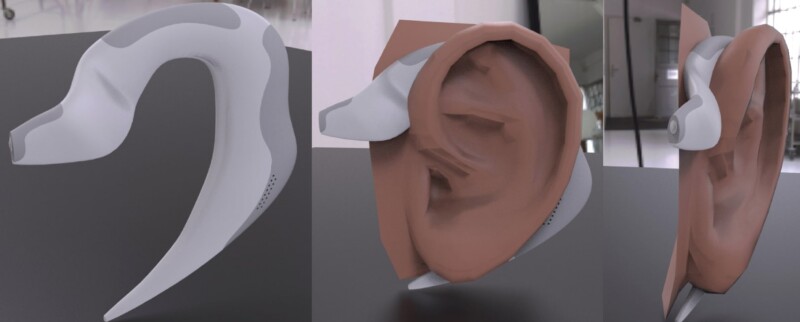Dieters Are Fitted With Tiny AI Ear Cameras to Track Eating Habits
![]()
Dieters are being fitted with tiny wearable artificially intelligent (AI) cameras to track everything they eat and offer advice on portion control.
In a new clinical trial, researchers will have tiny cameras fitted to a person’s ear to allow them to see what that individual is consuming.
AI will recognize the food amounts being eaten by the participant and then work out the correct portion sizes for the individual.

The ear-mounted cameras will begin filming the eating habits of 50 British volunteers and 150 others in Cork, in the Republic of Ireland, as well as Spain and Greece, as part of a European research project into healthy eating called CoDiet.
The intelligent, wearable camera, developed by scientists at Imperial College London, is one of the tools to collect dietary information that the project will test.
The camera is designed to be worn on the ear and passively record what the wearer eats. The device will use computer vision and deep learning techniques to automatically recognize food types and estimate portion sizes.
This will be coupled with other technologies that help us understand how food is processed in the body, including analysis of the gut microbiome and metabolites in the urine.
Cameras Will Bring Accuracy
The aim is that the AI cameras will be able to offer personalized advice on a person’s dietary habits and address a black hole in diet research as many studies rely on participants filling out questionnaires or keeping diaries.
People often forget to write things down or, when they do register a meal, they are not very accurate at estimating portion sizes. Meanwhile, feelings of guilt lead to treats and alcohol being left off the record.
However, the use of smart cameras to accurately record what people eat in their day-to-day lives could change this.
“One of the major gaps in our knowledge is accurate understanding of what people eat in their day-to-day lives. The tools we currently have are inaccurate which makes it very difficult to understand the relationship between diet and disease,” Professor Gary Frost, head of Nutrition Research at London’s Imperial College, where the cameras have been developed, explains.
“CoDiet puts this problem at the center of the project and brings together a number of new technologies to address this shortcoming.”
Image credits: Header photo licensed via Depositphotos.